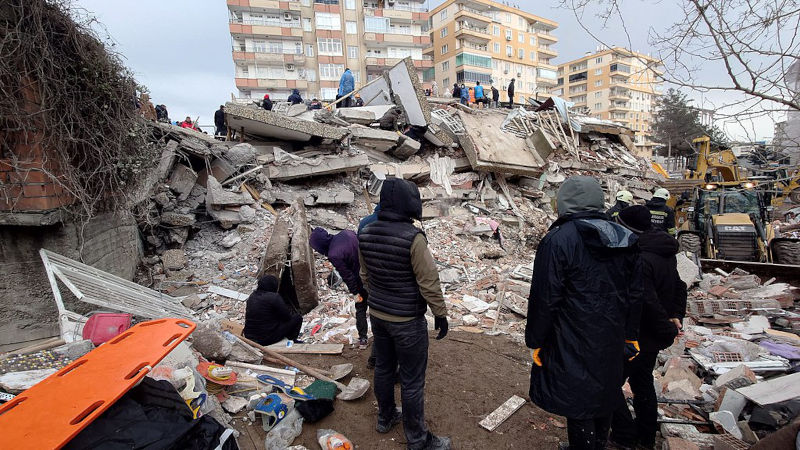Lessons from the earthquake disasters in Turkey and Syria
February 9, 2023
At personal, national and international levels, crises provide learning opportunities. How to adapt to loss by seeking change, how to think differently about family, community and nation by, among other things, pondering the meaning of security and sovereignty.
Immediate responses to the massive earthquake disasters in Turkey and Syria concern rescue, shelter, food supply, healthcare and the safety of Turkish and Syrian citizens. But the crises for those citizens could encourage all the worlds peoples to think again about ways to live in a world where hundreds of thousands are threatened by earthquakes, and millions by violence from other forces of nature.
The presence in Turkey and Syria of rescue teams from many countries speaks of interdependence not nationalism, of selflessness not selfishness, traits of a common humanity as instructive as courageous responses to disaster.
In the months that follow these earthquakes, survivors will be affected by an economy that will not be preoccupied with competition and gain, with glorification of financial success, let alone with out of reach housing prices and increasing inequality. Survival could emphasise ways of thinking and living through sharing, support, fellowship via more concern with collective well-being than individual advantage.
Lessons from Turkey and Syria have the potential to encourage powerful people, military, religious and business leaders, educators, judges and journalists to realise that life on planet earth has neither time nor place for human induced cruelty and violence. At the mercy of earthquakes and climate change, there can be no policy justification for cruelty as a key feature of domestic policies, or for violence as a hub of militarism in foreign policies.
In awe of the human tragedies in Turkey and Syria, members of an Australian government must surely ask why they would continue cruelty towards vulnerable people such as asylum seekers, why mouth respect for human rights yet maintain cruelty towards the thousands surviving in Australian cities on temporary protection visas?
Hundreds of thousands of survivors in Turkey and Syria search for tents to give modest shelter from snow and sub zero temperatures; and Australian citizens are no doubt giving generously to housing relief in earthquake zones. Yet, simultaneously, news bulletins in a wealthy country feature commentary on homelessness, on rental accommodation being unavailable and the likelihood that millions of young people may never have a home of their own.
Earthquake survivors urgent needs for shelter will require an imaginative and superhuman response in which advantage for a few over the interest of the many will have no place. In the same vein, response to housing crises in Australia will need to feed from the assumption that a roof is a right, that property ownership does not require proud multiple homes. not even a quick return by development of b & b rentals. During crises, lots of cultural and financial sacred cows have to be abandoned, perhaps forever.
Destruction from earth quakes raises questions about commitment to violence as a way to assert personal and national identity, with fists or guns, with build-up of armies and military alliances. Why on earth and earth is the operative word- - if faced with extinction from natural disasters, would anyone decide they had time for war, let alone want to spend $200 billion on eight US designed nuclear attack submarines for use in 2050 to support the US on the China coast?
Ways of living together in peace and harmony, safety and security must be reinterpreted and recrafted. To know how, ask grieving survivors and hard-pressed rescuers in Turkish and Syrian cities.
For centuries, safety and security has depended on violence from nation state policies, a mode of thinking and practice which has guaranteed misery and destruction. It is long overdue that human rights, humanity, and non-violence take centre stage, qualities so evident in responses to the Turkey Syrian disasters.
The lessons are obvious. The latest IPCC warnings about the consequences of catastrophic climate change are urgent requests to change ways of thinking and living.
Reject cruelty and violence. Imitate the generosity, courage, reciprocity, sharing and re-building being displayed in southern Turkey and northern Syria.
Learn from the Interdependence and solidarity shown in those earthquake ruins.

